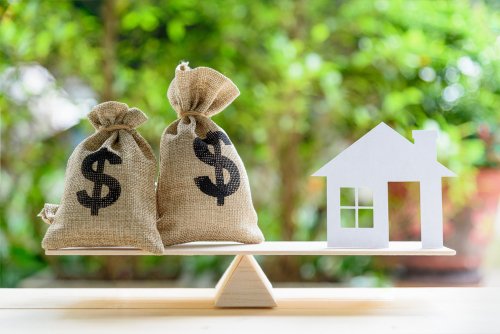A reverse mortgage allows people who are over age 62 to use the equity in their homes as cash to cover living expenses – including the mortgage payment itself. It’s called “reverse” because the lender makes payments to the borrower, rather than the other way around. Eventually, when the home is sold, the lender gets all of their investment returned. If you have a reverse mortgage, it can complicate bankruptcy but it shouldn’t prevent it from happening. Here’s a closer look at how it works.
Will a Bankruptcy With a Reverse Mortgage Cause a Foreclosure?
This is usually a homeowner’s number one worry when they’re in this situation. It’s true that a bankruptcy can technically be a financial event that triggers a reverse mortgage foreclosure, but it’s rare. Bankruptcy is intended to protect you while you get your financial picture in order. Your mortgage company would be aware of the reverse mortgage and would take it into account during your bankruptcy.
Will My Reverse Mortgage Payments Stop During Bankruptcy?
After you file for bankruptcy, your creditors will be notified – including your mortgage/reverse mortgage provider. It’s hard to say how they will react. They might continue to issue payments for a while, send you urgent notifications by mail or phone, halt your payments or stop communicating with you entirely and refer you to their lawyer. It is legal for them to stop issuing your reverse mortgage payments as soon as you initiate bankruptcy, so be aware of this before filing.
Is My Home Equity Safe?
To qualify for a reverse mortgage in the first place, you typically have to have at least 50% of the home’s value in equity. That’s a lot. Unfortunately, in many states you will lose this equity when you go through a bankruptcy unless you qualify for a significant exemption. Each situation is unique depending on the type of bankruptcy you select, the state you live in and the exact terms of your mortgage and reverse mortgage. Work with a bankruptcy attorney to navigate the details and investigate any exemptions. A homestead exemption, for example, could preserve between 5% and 100% of the equity in your home.
What if I Don’t Want to Keep My Home?
If you decide to turn your property over to your mortgage lender during your bankruptcy, they’ll sell it and use the proceeds to recoup as much of their outstanding loans to you as possible. Even after you are no longer living in the property, you will still be responsible for both the mortgage and the reverse mortgage. You also will no longer have access to the reverse mortgage funds that you might have been using to pay other bills. This could have a major impact on your life, so choose this path carefully with the help of a bankruptcy attorney.
Sawin & Shea – Indianapolis Bankruptcy Attorneys
Filing for bankruptcy is not the end. It’s the beginning of a new financial life for you. The Indiana bankruptcy attorneys at Sawin & Shea can help you get rid of the overwhelming debt and advise you on life after bankruptcy. We are here for you during this life-changing process. Please do not hesitate to call us today at 317-759-1483 or send an email for a free consultation. We are ready to help.



